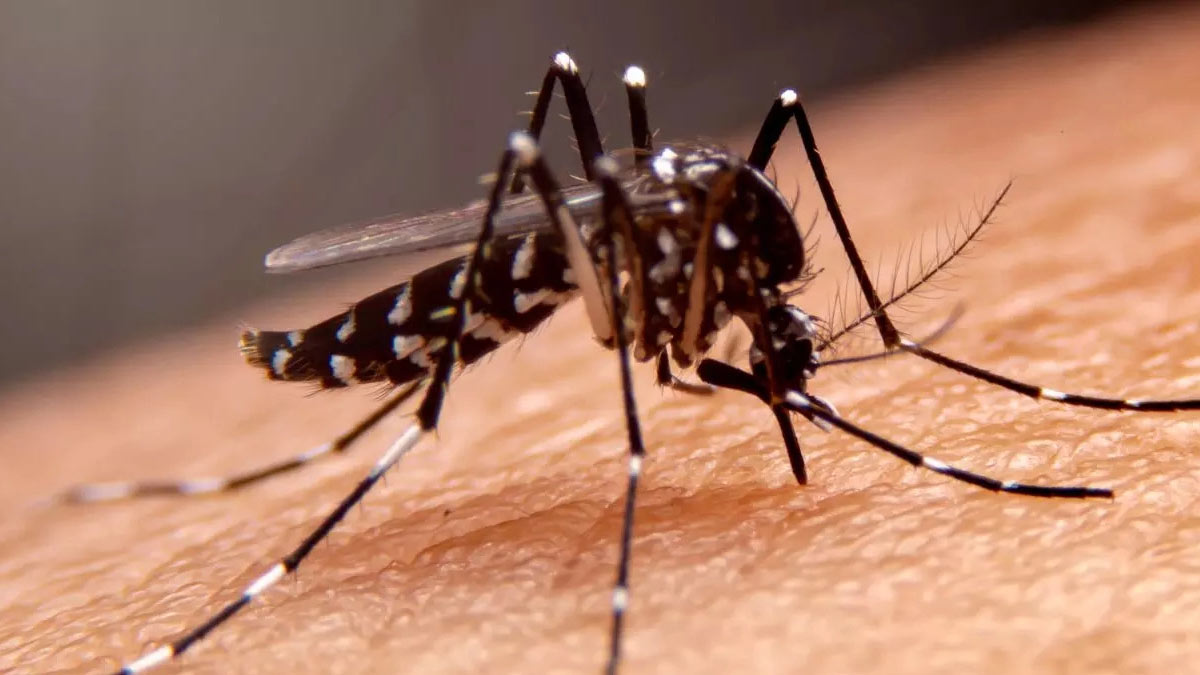Lucknow is currently grappling with a surge in vector-borne diseases, with a notable increase in dengue and malaria cases. On Sunday, health officials reported that the capital city witnessed 61 new cases of dengue and 4 new malaria cases within a single day. This spike raises concerns about the rapid spread of these diseases and the need for heightened precautions as the city deals with the ongoing monsoon season, a prime period for the breeding of mosquitoes.
Sharp Increase in Dengue and Malaria Cases
The latest data shared by the Office of the Chief Medical Officer (CMO) highlights that Lucknow is facing an alarming rise in cases of both dengue and malaria. With 61 new dengue infections and 4 additional malaria cases confirmed in just 24 hours, the city’s healthcare system is now on high alert. This sudden rise in cases has brought the total number of dengue infections to 779 and malaria cases to 425 since the beginning of the year.
Health authorities are working hard to mitigate the spread of these vector-borne diseases. In a bid to curtail mosquito breeding, the city’s malaria unit conducted extensive field visits over the weekend. Their efforts included inspecting households for potential mosquito breeding grounds and ensuring that residents are informed about the importance of eliminating stagnant water around their homes. These efforts come in response to the growing number of cases across various neighbourhoods in Lucknow.
Areas Affected by Dengue and Malaria
Dengue cases have been reported from multiple areas in the city, including Indiranagar, Chandernagar, Aliganj, NK Road, Tudiyaganj, Bakshi Ka Talab, Itaunja, Red Cross, Silver Jubilee, Chinhat, Gosaiganj, Sarojninagar, and Aishbagh. The spread of malaria, although less widespread, has still impacted several localities, with cases coming from Aliganj, NK Road, and Chandernagar. These areas have been identified as potential hotspots, and health officials are taking additional measures to control the situation.
Also Read: Ludhiana Sees Early Surge in Swine Flu Cases with 26 Infections Logged, Doctors Sound Alarm
Malaria Unit’s Field Visits and Preventive Measures
In response to the rising number of cases, the city’s malaria unit undertook field visits to monitor potential mosquito breeding sites. Over the weekend, a total of 26 homes were identified as high-risk areas for larval breeding—12 houses on Sunday and 14 on Saturday. These homes are expected to receive official notices soon, urging residents to take immediate action to prevent mosquito breeding.
During their inspections, health officials surveyed 1,400 houses on Sunday alone, checking for standing water and providing residents with guidelines on how to protect themselves from mosquito bites. The CMO’s office stressed the importance of community involvement in reducing the mosquito population. Residents were advised to clear out stagnant water in containers, flower pots, and other outdoor objects, which are common breeding grounds for mosquitoes.
Also Read: Ebola-Like Marburg Virus Kills 6 In Rwanda; Know All About It
The Role of Public Awareness
As part of their efforts to combat the rise in dengue and malaria cases, the city’s health department is focusing on raising awareness about preventive measures. Officials are working on educating the public about the symptoms of these diseases, which include fever, headaches, joint pain, and fatigue. Early detection and treatment are crucial to preventing complications, especially in severe dengue cases, which can lead to hemorrhagic fever and shock.
Authorities are urging citizens to be vigilant, not just by keeping their surroundings clean but also by seeking medical attention if they exhibit any symptoms of these vector-borne illnesses. Community awareness campaigns and door-to-door inspections will continue as part of the broader strategy to curb the spread of dengue and malaria.
Bottomline
Lucknow’s recent spike in dengue and malaria cases serves as a reminder of the critical importance of preventive healthcare and community involvement in combating vector-borne diseases. With 61 new dengue cases and 4 malaria cases reported in a single day, public health officials are intensifying their efforts to limit mosquito breeding and raise awareness about the dangers posed by these diseases. Residents of affected areas are encouraged to take extra precautions and cooperate with health authorities to mitigate further outbreaks.
